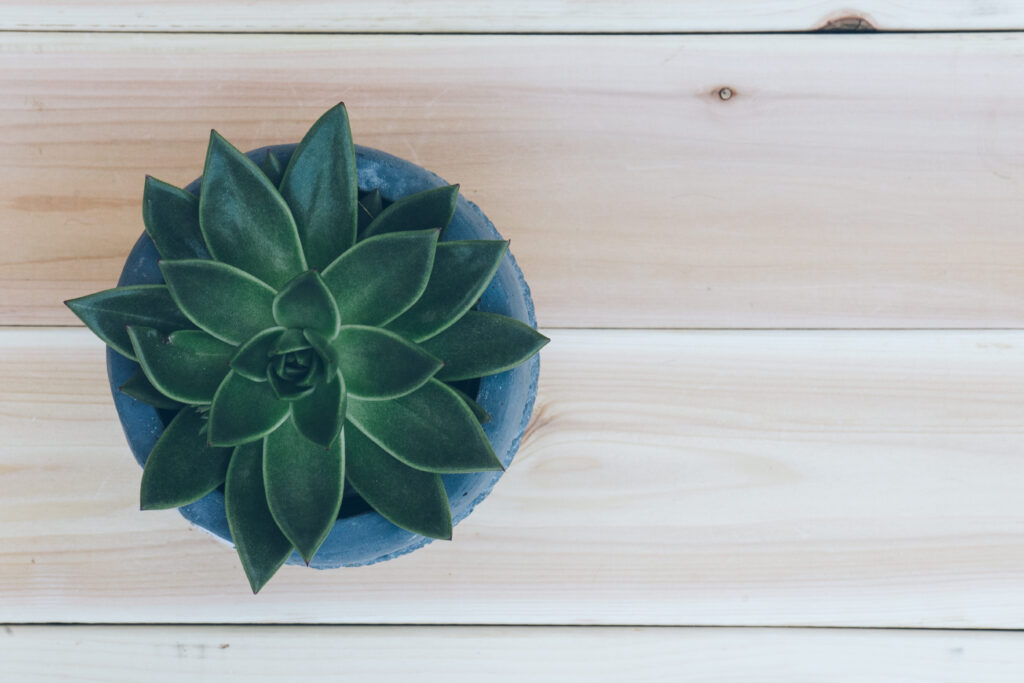
Succulent Leaves: Health Risks and Benefits of Eating

Succulent plants are known for their fleshy leaves and ability to store water, making them resilient in arid environments. These plants, which include popular varieties like aloe vera, jade plants, and cacti, have gained popularity not only as decorative houseplants but also as ingredients in various dishes and beverages. While succulent leaves may offer unique flavors and potential health benefits, it is important to be aware of the potential risks associated with their consumption.
We will explore the health risks and benefits of eating succulent leaves. We will discuss the nutritional content of these leaves, including vitamins, minerals, and antioxidants that they may contain. Additionally, we will examine the potential health benefits that have been attributed to succulent leaves, such as their anti-inflammatory and antioxidant properties. However, we will also delve into the potential dangers of consuming succulent leaves, including the presence of toxins and possible allergic reactions. By providing a comprehensive overview of the topic, we aim to help readers make informed decisions about incorporating succulent leaves into their diet.
- Consuming succulent leaves can provide a variety of health benefits
- Some succulent plants have leaves that are edible and can be incorporated into meals
- Eating succulent leaves can be a source of hydration due to their water content
- Some succulent leaves are rich in vitamins and minerals, offering nutritional value
- The high fiber content in succulent leaves can aid in digestion and promote a healthy gut
- Certain succulent leaves are known for their medicinal properties and can be used in herbal remedies
- However, it is important to research and properly identify which succulent leaves are safe to eat
- Some succulent leaves may contain toxins or irritants that can cause harm if consumed
- If unsure, it is best to consult with a knowledgeable expert or refer to a reputable source before consuming succulent leaves
- Frequently Asked Questions
Consuming succulent leaves can provide a variety of health benefits
Succulent leaves, known for their fleshy and water-retaining properties, have gained popularity for their various health benefits. These leaves, found in plants like aloe vera, agave, and cacti, are not only visually appealing but also packed with essential nutrients.
Here are some of the key health benefits of incorporating succulent leaves into your diet:
1. Hydration
Succulent leaves are excellent sources of hydration due to their high water content. They can help replenish your body's fluid levels and keep you well-hydrated throughout the day.
2. Nutrient-rich
These leaves are loaded with vitamins, minerals, and antioxidants. They are particularly rich in vitamins A, C, and E, which are known to boost immune function, promote healthy skin, and support overall well-being.
 The Benefits and Risks of Using Coffee for Succulents: Explained
The Benefits and Risks of Using Coffee for Succulents: Explained3. Digestive health
The mucilage present in succulent leaves can aid in digestion by soothing the digestive tract and promoting bowel movements. It can help alleviate constipation and reduce gastrointestinal discomfort.
4. Anti-inflammatory properties
Succulent leaves contain compounds with anti-inflammatory properties, which can help reduce inflammation in the body. This can be beneficial for individuals with conditions like arthritis and inflammatory bowel disease.
5. Skin health
Applying succulent leaves topically or incorporating them into your diet can help improve skin health. Their moisturizing and soothing properties can help hydrate and nourish the skin, reducing dryness and promoting a healthy complexion.
6. Weight management
Succulent leaves can be a valuable addition to a weight management plan. Their high water content and low calorie count can help you feel full without consuming excessive calories, aiding in weight loss or weight maintenance.
- Caution: While succulent leaves offer numerous health benefits, it's essential to exercise caution when consuming them. Some succulent plants may have toxic leaves, and it's crucial to identify the safe ones before consumption.
- Always consult a healthcare professional before incorporating new foods into your diet, especially if you have any underlying health conditions or concerns.
Succulent leaves can be a valuable addition to a healthy diet, offering hydration, essential nutrients, and various other health benefits. However, it's important to do thorough research, choose the right plants, and consult a healthcare professional to ensure safe consumption.
Some succulent plants have leaves that are edible and can be incorporated into meals
Succulent plants, known for their ability to retain water in their thick and fleshy leaves, are not only popular for their aesthetic appeal but are also gaining recognition for their potential health benefits. In recent years, there has been an increased interest in incorporating succulent leaves into meals as a way to add flavor, texture, and nutritional value.
While not all succulent plants have edible leaves, there are several varieties that are safe and even beneficial to consume. However, it is essential to understand the potential health risks and benefits associated with eating succulent leaves before incorporating them into your diet.
 Can Succulents Enhance Indoor Air Quality by Producing Oxygen?
Can Succulents Enhance Indoor Air Quality by Producing Oxygen?The Health Risks of Eating Succulent Leaves
1. Toxicity: Some succulent plants contain toxic compounds that can be harmful when ingested. It is crucial to identify the specific species and ensure they are safe for consumption before using their leaves in cooking or salads. Research and expert guidance are recommended to avoid any potential health hazards.
2. Allergies: Like any other food, succulent leaves can cause allergic reactions in some individuals. Symptoms may include itching, swelling, hives, or even anaphylaxis in severe cases. If you have known allergies or sensitivities, it is important to exercise caution and consult with a healthcare professional or allergist before consuming succulent leaves.
The Benefits of Eating Succulent Leaves
1. Nutritional Value: Succulent leaves are packed with essential nutrients, including vitamins, minerals, and antioxidants. They can provide a valuable source of vitamins A, C, and E, as well as minerals like calcium, magnesium, and potassium. Incorporating succulent leaves into your diet can help boost your overall nutrient intake.
2. Hydration: Succulent leaves are naturally water-rich, making them an excellent choice for staying hydrated. The high water content can help replenish fluids in the body and contribute to maintaining optimal hydration levels.
3. Culinary Versatility: Succulent leaves offer a unique texture and flavor profile, adding a delightful twist to various dishes. They can be used in salads, stir-fries, soups, stews, or even as a garnish. Their versatility allows for creative culinary experimentation.
It is important to note that the benefits mentioned above are general and may vary depending on the specific succulent plant and individual dietary needs. As with any dietary change, it is advisable to consult with a healthcare professional or nutritionist to ensure that incorporating succulent leaves into your diet is appropriate for your specific health conditions or concerns.
Some succulent plants have edible leaves that can be safely consumed and offer potential health benefits. However, it is crucial to exercise caution, conduct thorough research, and seek expert guidance to avoid any potential health risks associated with toxicity or allergies. If done correctly, incorporating succulent leaves into your meals can not only enhance the culinary experience but also contribute to a well-rounded and nutritious diet.
 Can Coffee Grounds Boost Succulent Growth as Fertilizer?
Can Coffee Grounds Boost Succulent Growth as Fertilizer?Eating succulent leaves can be a source of hydration due to their water content
Succulent leaves, known for their thick and fleshy texture, are not only visually appealing but also have some surprising health benefits. One such benefit is their high water content, which can help in keeping the body hydrated. Succulents, like aloe vera and certain cacti, have evolved to store water in their leaves to survive in arid climates. So, incorporating these leaves into your diet can be a refreshing way to stay hydrated.
When consumed, succulent leaves release their water content, providing a natural source of hydration. This can be particularly helpful during hot summer months or after engaging in physical activities that cause excessive sweating. So, instead of reaching for sugary drinks or artificial hydration solutions, consider adding succulent leaves to your diet for a natural and healthy way to replenish fluids.
However, it's important to note that not all succulent leaves are safe for consumption. Some succulents, like the popular houseplant, jade plant (Crassula ovata), contain compounds that can be toxic when ingested in large quantities. Therefore, it is essential to research and identify the specific succulent leaves that are safe for consumption.
Here are a few succulent leaves that are known to be safe for consumption:
- Aloe Vera: Aloe vera leaves are not only great for topical applications but can also be consumed. The gel inside the leaves is rich in vitamins, minerals, and antioxidants that can benefit the immune system, promote digestion, and support healthy skin.
- Purslane: Purslane leaves have a slightly tangy taste and are packed with nutrients like omega-3 fatty acids, vitamins A, C, and E, and minerals like potassium and magnesium. They are known for their anti-inflammatory properties and can be a great addition to salads or stir-fries.
- Prickly Pear Cactus: Prickly pear cactus leaves, also known as nopales, are a staple in Mexican cuisine. They are low in calories, high in fiber, and contain essential nutrients like vitamin C, magnesium, and calcium. Nopales have been used traditionally to help regulate blood sugar levels and support digestive health.
As with any dietary change or addition, it's advisable to consult with a healthcare professional or nutritionist before incorporating succulent leaves into your diet, especially if you have any pre-existing health conditions or are on medication.
Adding succulent leaves to your diet can provide hydration while also offering various health benefits. However, it's crucial to ensure that the succulent leaves you consume are safe for consumption and to consume them in moderation. Stay hydrated and explore the world of succulent leaves for a refreshing and nutritious addition to your meals.
 Using Coffee Grounds as Succulent Fertilizer: Benefits & Guidelines
Using Coffee Grounds as Succulent Fertilizer: Benefits & GuidelinesSome succulent leaves are rich in vitamins and minerals, offering nutritional value
Eating succulent leaves can provide various health benefits due to their rich nutritional content. These leaves are packed with vitamins and minerals, making them a valuable addition to a well-balanced diet.
Vitamins
Succulent leaves are an excellent source of vitamins, with different varieties offering various vitamins such as:
- Vitamin A: essential for healthy vision, immune system function, and cell growth.
- Vitamin C: boosts the immune system, aids in collagen production, and acts as an antioxidant.
- Vitamin E: supports skin health, acts as an antioxidant, and may help protect against certain diseases.
- Vitamin K: important for blood clotting and bone health.
Minerals
In addition to vitamins, succulent leaves are also rich in minerals that are vital for various bodily functions. Some of the minerals commonly found in succulent leaves include:
- Calcium: plays a crucial role in maintaining strong bones and teeth.
- Magnesium: necessary for energy production, muscle function, and maintaining a healthy nervous system.
- Potassium: helps regulate blood pressure, supports heart health, and aids in muscle and nerve function.
- Iron: essential for the production of red blood cells and oxygen transport in the body.
By consuming succulent leaves, you can easily incorporate these beneficial vitamins and minerals into your diet, promoting overall health and well-being. However, it is important to note that not all succulent leaves are safe for consumption, as some may have toxic properties. Therefore, it is crucial to do thorough research or consult with a professional before consuming any succulent leaves.
The high fiber content in succulent leaves can aid in digestion and promote a healthy gut
Eating succulent leaves can have several health benefits, one of which is their high fiber content. Fiber is essential for a healthy digestive system as it adds bulk to the stool, making it easier to pass through the intestines. This can help prevent constipation and promote regular bowel movements.
 Can Succulent Fertilizer Also Benefit Other Plants?
Can Succulent Fertilizer Also Benefit Other Plants?Succulent leaves, such as those from aloe vera or cactus, are particularly rich in dietary fiber. Including these leaves in your diet can provide an excellent source of natural fiber, helping to regulate your digestive system and maintain a healthy gut.
Moreover, the fiber found in succulent leaves acts as a prebiotic, providing nourishment to the beneficial bacteria in your gut. These bacteria play a crucial role in maintaining a healthy gut microbiome, which is essential for overall digestive health and immune function.
In addition to aiding digestion, the high fiber content in succulent leaves can also help control blood sugar levels. Fiber slows down the absorption of sugar into the bloodstream, preventing sudden spikes in blood sugar levels. This can be particularly beneficial for individuals with diabetes or those looking to manage their blood sugar levels.
It is important to note: While succulent leaves offer numerous health benefits, it is crucial to consume them in moderation and ensure they are prepared and cooked properly. Some succulent leaves may contain toxins or irritants that can cause digestive discomfort if consumed in excess or without proper preparation. Always consult reliable sources or seek guidance from a healthcare professional before incorporating succulent leaves into your diet.
Certain succulent leaves are known for their medicinal properties and can be used in herbal remedies
Succulent leaves, with their unique ability to store water and nutrients, have gained popularity not only as ornamental plants but also for their potential health benefits. These fleshy leaves are not just visually appealing but also offer a range of medicinal properties that can be harnessed in herbal remedies.
1. Aloe Vera: One of the most well-known succulent plants, aloe vera, is widely recognized for its soothing and healing properties. The gel found in its leaves is rich in vitamins, minerals, and antioxidants, making it an excellent ingredient for skincare products. Aloe vera has been used for centuries to treat various skin conditions such as burns, wounds, and dermatitis.
 Can Bearded Dragons Safely Consume Succulents as Part of Their Diet?
Can Bearded Dragons Safely Consume Succulents as Part of Their Diet?2. Prickly Pear Cactus: The prickly pear cactus, also known as Opuntia, is another succulent with numerous health benefits. Its leaves, fruit, and seeds are all edible and have been traditionally used in Mexican cuisine. The cactus is rich in antioxidants, vitamins, and minerals. It is believed to have anti-inflammatory properties, aid digestion, and help regulate blood sugar levels.
3. Jade Plant: While primarily known as an ornamental plant, the jade plant (Crassula ovata) also possesses certain health benefits. Its leaves contain compounds that have been found to have antioxidant and anti-inflammatory properties. Some studies suggest that the jade plant may help lower blood pressure and improve cardiovascular health.
4. Kalanchoe: The leaves of the kalanchoe plant are known for their antimicrobial and anti-inflammatory properties. They have been used in traditional medicine to treat various ailments such as infections, skin conditions, and gastrointestinal disorders. However, it's important to note that certain species of kalanchoe plants contain toxic compounds, so caution must be exercised when using them for medicinal purposes.
5. Agave: Agave plants, commonly known for their use in tequila production, also have potential health benefits. The leaves of the agave plant contain a natural sweetener called agave nectar, which is a popular alternative to refined sugar. Agave nectar has a lower glycemic index compared to regular sugar, making it a suitable option for individuals with diabetes or those aiming to reduce their sugar intake.
Incorporating succulent leaves into your diet or skincare routine can bring about various health benefits. However, it's important to remember that each plant has its own unique properties and potential risks. Consult with a healthcare professional or herbalist before using succulent leaves for medicinal purposes to ensure their safe and appropriate usage.
However, it is important to research and properly identify which succulent leaves are safe to eat
While it may be tempting to pluck a succulent leaf and munch on it, not all succulent leaves are safe for consumption. Some succulent plants contain toxic compounds that can be harmful if ingested. Therefore, it is crucial to do your homework and ensure that the succulent leaves you intend to eat are safe and beneficial for your health.
 Do Succulents Actually Cleanse and Freshen Indoor Air?
Do Succulents Actually Cleanse and Freshen Indoor Air?How to identify safe succulent leaves for consumption
When it comes to eating succulent leaves, it's essential to know which plants are safe to consume. Here are a few guidelines to help you identify the right succulent leaves:
- Research: Before consuming any succulent leaves, conduct thorough research to determine which plants are edible and which are toxic. Look for reliable sources, such as reputable gardening websites, books, or consult with experts in the field.
- Physical characteristics: Safe succulent leaves usually have certain physical characteristics that differentiate them from toxic ones. Look for leaves that are plump, fleshy, and have a vibrant color. Avoid leaves that appear wilted, discolored, or have an unusual texture.
- Known edible succulents: Some succulent plants are commonly known to be safe for consumption. For example, certain species of Aloe vera, purslane, and sedum are considered edible and have been used in culinary applications for centuries.
The potential health risks of consuming toxic succulent leaves
Consuming toxic succulent leaves can have adverse effects on your health. Some succulents contain toxic compounds, such as oxalates or alkaloids, which can cause symptoms such as nausea, vomiting, diarrhea, or even more severe reactions in some individuals.
It is important to note that even if a succulent leaf is generally considered safe, individual reactions may vary. It is advisable to start with small quantities and be aware of any allergic reactions or discomfort that may arise after consumption.
The potential health benefits of consuming safe succulent leaves
On the other hand, consuming safe succulent leaves can offer various health benefits. Many succulent plants are rich in vitamins, minerals, and antioxidants, which can contribute to a well-rounded diet and support overall health.
For instance, Aloe vera leaves are known for their healing properties and are often used in skincare and digestive health products. Purslane leaves are packed with omega-3 fatty acids and are considered a nutritious addition to salads and stir-fries.
However, it's essential to remember that the potential health benefits of succulent leaves should not replace a balanced diet. They can be a valuable addition, but should not be relied upon as the sole source of nutrition.
While there are succulent leaves that are safe and beneficial for consumption, it is crucial to exercise caution and proper research before adding them to your diet. By following the guidelines mentioned above and being mindful of potential risks, you can enjoy the health benefits that safe succulent leaves have to offer.
 Exploring the Symbolic Meanings of Giving Succulent Plants as Gifts
Exploring the Symbolic Meanings of Giving Succulent Plants as GiftsSome succulent leaves may contain toxins or irritants that can cause harm if consumed
While succulent leaves are often praised for their unique taste and nutritional benefits, it's important to be aware that not all succulent leaves are safe to eat. Some varieties of succulent plants contain toxins or irritants that can cause harm if consumed.
Potential health risks
Consuming certain types of succulent leaves can lead to adverse health effects. These risks can vary depending on the specific plant species and individual sensitivity, but it's crucial to exercise caution when considering eating succulent leaves.
- Toxicity: Some succulent leaves may contain toxic compounds, such as alkaloids or glycosides. Ingesting these toxins can lead to symptoms like nausea, vomiting, diarrhea, or even more severe reactions.
- Irritation: Certain succulent leaves may have irritating substances, such as oxalates or spines. These can cause discomfort, swelling, or irritation in the mouth, throat, or digestive tract when consumed.
- Allergic reactions: Individuals with known allergies or sensitivities to certain plants should exercise caution when consuming succulent leaves. Allergic reactions can range from mild skin irritation to severe swelling, difficulty breathing, or anaphylaxis.
Potential health benefits
Despite the potential risks associated with consuming succulent leaves, some varieties can offer health benefits when consumed in moderation as part of a balanced diet.
- Nutrient-rich: Certain succulent leaves are packed with essential nutrients such as vitamins, minerals, and antioxidants. These can support overall health, boost the immune system, and contribute to a well-rounded diet.
- Hydration: Succulent leaves often store water, making them a good source of hydration. This can be particularly beneficial in arid climates or during periods of increased physical activity.
- Digestive aid: Some succulent leaves contain compounds that can aid digestion and promote gut health. They may have a mild laxative effect or assist in soothing gastrointestinal discomfort.
It's important to note that the potential benefits of consuming succulent leaves should be weighed against the risks and individual circumstances. Consulting with a healthcare professional or an expert in plant toxicity is always advisable before incorporating new foods into your diet.
While some succulent leaves can offer health benefits, others may pose risks due to toxins or irritants. It's crucial to research specific plant species, exercise caution, and consult with professionals to make informed decisions about consuming succulent leaves.
If unsure, it is best to consult with a knowledgeable expert or refer to a reputable source before consuming succulent leaves
 The Benefits of Succulents: Enhancing Your Home and Garden
The Benefits of Succulents: Enhancing Your Home and GardenWhile succulent leaves may be visually appealing and trendy in the world of culinary arts, it is important to be aware of the potential health risks and benefits associated with eating them. Before indulging in this unique food trend, it is crucial to gather accurate information about the effects it may have on your well-being.
Potential Health Risks
1. Toxicity: Some varieties of succulent plants contain toxic substances that can be harmful when ingested. It is crucial to identify the specific type of succulent you are consuming and ensure it is safe for consumption.
2. Allergic Reactions: Just like any other food, succulent leaves may trigger allergic reactions in some individuals. It is advisable to start with a small amount and observe your body's response before consuming large quantities.
3. Contamination: Succulent leaves can be contaminated with harmful bacteria or pesticides if not properly grown, handled, or washed. It is essential to obtain succulent leaves from reputable sources and thoroughly wash them before consumption.
Potential Health Benefits
1. Nutritional Value: Succulent leaves are packed with nutrients and can be a good source of vitamins, minerals, and fiber. They may contribute to a well-rounded diet and provide various health benefits.
2. Hydration: Many succulent plants store water in their leaves, making them an excellent source of hydration. Incorporating succulent leaves into your diet can help maintain proper hydration levels.
3. Antioxidants: Some succulent plants are rich in antioxidants, which can help combat oxidative stress and reduce the risk of chronic diseases.
 Edible Potential of Succulents: Can You Eat These Trendy Plants?
Edible Potential of Succulents: Can You Eat These Trendy Plants?- Examples of succulent plants with potential health benefits include Aloe vera, Purslane, and Prickly Pear.
- However, it is essential to note that the potential health benefits of succulent leaves vary depending on the specific plant and individual factors.
While succulent leaves can offer unique flavors and potential health benefits, it is crucial to approach their consumption with caution. Always verify the safety of the succulent plant you are considering and be aware of potential allergies, contamination, or toxicity. Consulting with an expert or referring to reputable sources will ensure a safe and enjoyable experience when incorporating succulent leaves into your diet.
Frequently Asked Questions
1. Are succulent leaves safe to eat?
Generally, yes. Most succulent leaves are safe to eat and are non-toxic. However, it is essential to know the specific succulent species before consuming them as some may be harmful.
2. What are the potential health risks of eating succulent leaves?
While most succulent leaves are safe, some may cause digestive discomfort or allergic reactions in certain individuals. It is advisable to try a small amount first and monitor any adverse reactions.
3. Can eating succulent leaves provide any health benefits?
Yes, some succulent leaves are rich in nutrients like vitamins, minerals, and antioxidants, which may offer health benefits such as improved digestion, boosted immune system, and potential anti-inflammatory effects.
4. How should succulent leaves be prepared before consumption?
Succulent leaves should be thoroughly washed to remove any dirt or debris. It is recommended to remove the spines or prickles, if present, and to consume only the fleshy part of the leaf. Cooking or steaming can also be done for certain succulent leaves to enhance their flavor and texture.
If you want to read more articles similar to Succulent Leaves: Health Risks and Benefits of Eating, you can visit the Uses and Benefits category.






You Must Read